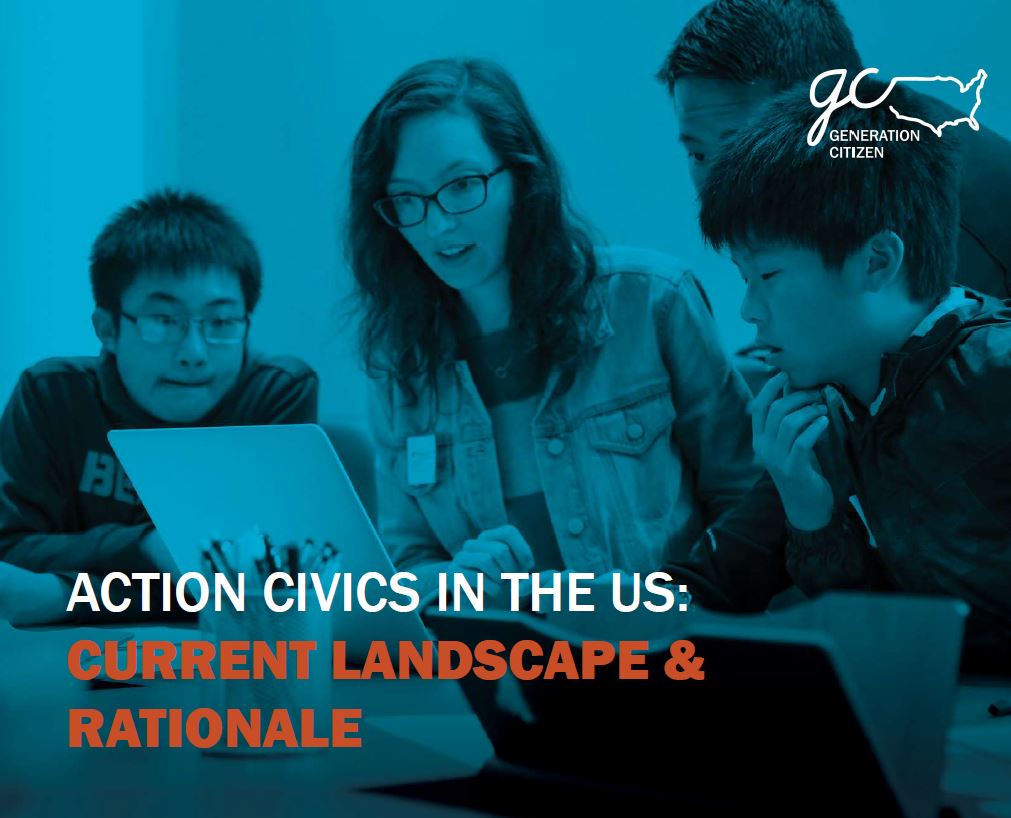In the climate of this election season, we are beginning to hear the same refrain from many of our stakeholders: “Your work is more needed than ever!” While we appreciate the sentiment, we feel the obligation to prove the importance of our work beyond a gut reaction – and share it with a wider audience than our current stakeholders.
Thus, at Generation Citizen, we’re currently ramping up our demand building efforts. Our organizational mission is to ensure that every student in America gets an action civics education. We recognize, however, that to achieve this lofty goal, we have to scale in ways beyond bringing our program to new communities. To that end, we’ve been working to create a strategy to advocate for action civics nationwide and ultimately influence hearts and minds, and policies and pockets.
As a first step, today we are releasing a report that begins to make the empirical case for the importance of effective action civics education. You can see that report here.
This past February, we hosted a convening at the Ford Foundation to bring together different stakeholders, and discuss the principal tenets of democracy education. One takeaway from the convening was that there are diverse visions of what civic education is, and should be – making it clear that in order to move the field forward, we need to have a better understanding of how it lives today, and why it is needed.
We then set out to better understand the greater context in which we’re working. What is the current state of civic education? How is it perceived and valued? What individuals and organizations are working in and influencing the space? What are the outcomes – and shortcomings of an effective civic education? What are barriers to implementation?
We spoke with stakeholders in the field, reviewed existing relevant literature and data collection, and scanned contemporary culture in order to begin to answer the above questions and more. Our findings – and the conversations, debates, and brainstorming sessions that they provoked – helped us to identify how we can encourage others to share our deep-seated conviction that an action civics education is vital for all young people.
We want to share our findings widely and loudly, and the action civics demand building theory of change they inform, so we can clarify the current state of the field and convince everyone of the need for action civics, regardless of the political season.
